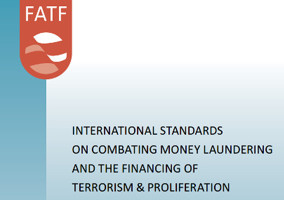A recent story said that 300 charities had fallen victim to 'bank de-risking'. Andrew O'Brien of the Charity Finance Group says this issue is still impacting charities' work and risking lives.
A few weeks ago Reuters wrote a story about the ‘crackdown’ on illegal funds leading to around 300 charities losing their bank accounts. This isn’t a new story. The scale of the challenge was first identified in a FCA commissioned report into bank de-risking in May 2016. This in turn has been based on a number of a pieces of research on this topic most notably Tom Keatinge’s Demos Report Uncharitable Behaviour back in December 2014. It is also a topic that Civil Society Media and other sector journals have covered over many years.
In detailing this, my point is to make clear that this is not a ‘flash in the pan’. It is a long term issue that charities, big and small, have been grappling with for some time. What the Reuters’ story was useful in doing was highlighting the point that this issue hasn’t gone away.
So what we mean by bank de-risking? At the extreme end, this refers to financial institutions (mainly banks) exiting relationships with clients that deem to be ‘high risk’. On a lower level, it is the slow ratcheting up of compliance and due diligence to the point where, in some cases, clients can no longer meet the requirements of the bank.
Risking the lives of staff
How is this impacting charities? In our work on this topic, we have spoken, met and surveyed many charities that have seen their payments delayed, undermining projects and risking the lives of staff/beneficiaries, funds frozen and bank accounts closed, in some cases leaving them unable to effectively function. This hasn’t just been about the big household name charities. The most severe impact has been at the smaller end. And it isn’t just limited to charities working in obviously high-risk environments. I’ve heard stories from charities that work exclusively in the UK, or in low risk countries in Europe, that have been unable to open an account or have had their accounts closed.
So where are we now? On a practical level, we are still very much walking the same banking tightrope that we were a few years ago. The reason is that systemic factors which encourage bank de-risking are still in place. The existence of Islamic State and incidents of domestic terrorism mean that the US/UK governments and other countries around the world are still putting more and more pressure on banks to cut off terrorist funds. Regulators are still threatening banks with big fines for breaching laws or regulations on sanctions breaching, terrorist funds or money laundering. Banks are still finding it hard to consistently hit profit targets despite it being over a decade since the ‘credit crunch’ began.
As a consequence, banks are still trying to reduce their risk, either by forcing more compliance onto their clients or by exiting relationships where do not feel that they have enough comfort that they will not be subject to fines or risk their banking licences in the US. Charities, which for years were labelled as ‘particularly vulnerable’ to abuse and which are generally ‘low profit’ for the banks are still in the firing line.
Some progress
But there has been progress on a number of levels. Firstly, there has been progress in how charities deal with banks. We have seen the sophistication with which charities have been able to discuss problems of money laundering and terrorist financing increase substantially. The impact of this issue combined with coverage about it has encouraged charities to understand the problem and talk with banks in their own language. There is still a long way to go, but charities are getting better educated about this issue and this means that they can have more constructive conversations with banks, which is critical in keeping access to services open.
In many cases, charities are already undertaking a significant amount of due diligence because they want to protect their funds, but banks don’t always understand this. We need to do more to get that information across and give banks, regulators and government confidence that we can effectively manage risk.
Secondly, there has been progress at a national level. There have been increasingly productive discussions between banks, charities, the Charity Commission and government about this problem. There is much greater will to solve it then there was previously and conversation has moved on from whether there is a problem, to how we deal with it. The government has also recently said that it is open to creating ‘general licences’ for humanitarian aid in sanctioned countries, which if implemented properly could greatly reduce risks for banks and charities.
Finally, at an international level there has been change. As was covered by Civil Society Media last year, the Financial Action Task Force (FATF) has removed the reference to charities as being ‘particularly vulnerable’. It has also asked government to be wary of the disproportionate impact that counter-terrorism and money laundering legislation/regulation can have on legitimate charitable activities. This is important mood music and the UK will soon be evaluated under this new standard, giving UK charities a chance to demonstrate both to the UK government and internationally, the seriousness with which the sector takes this issue.
We have to be realistic that this problem is not likely to completely go away in the foreseeable future. We must also not forget the urgency of this issue, as it is beneficiaries, in many cases some of the most vulnerable people in the world, that are suffering. But sure and steady progress is being made, and hopefully this time next year, we’ll be able to report on further improvements to the banking environment for charities.
Andrew O'Brien is head of policy and engagement at Charity Finance Group
Related articles












